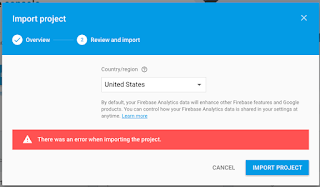Parallel to Lincoln's angry letters never sent concept...
With all that I read, hear, and see these days about folks (not excluding yours truly) expressing themselves, I sometimes wonder about President Lincoln's idea of writing but not sending letters . For better or worse, there is certainly a sharp contrast between that and typical use of today's communication. I was not necessarily thinking of opinions, emotions, and perspectives although I do see the wisdom in the Lincoln's method of dealing with such issues. My issue, at least this time, was being stuck with a particular problem using a technology which is not part of my regularly used skillset. The technology itself is irrelevant to my point so I won't name it here. I had struggled with a solution after a bit of reading the documentation, searching for and modifying some similar examples, and experimentation. The time I had put in was actually very little because I was simultaneously working on other parts of the solution. That's another way of saying I wa...

